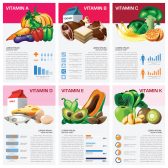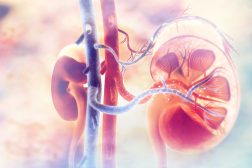Definition
noun, plural: zymogens
An inactive enzyme precursor that requires a biochemical change to become active or functional
Supplement
Zymogens are enzyme precursors. They are also referred to as proenzymes. They are inactive in a way that they are not functional until a biochemical change occurs. A biochemical change is required to activate it. Examples of biochemical change are hydrolysis and limited proteolysis of an inhibiting fragment.
When hydrolyzed, zymogens may turn into enzymes that are active and functional. This is because hydrolysis reveals the active site of the zymogen. For instance, hydrolysis alters the configuration of the zymogen, or cleaves off a part of the zymogen (e.g. a peptide unit) that renders the zymogen inactive. This allows the zymogen to be capable of reacting biochemically with a specific molecule. Biochemical changes that turn a zymogen into an active enzyme often occur within the lysosome.
An example of zymogen is pepsinogen. Pepsinogen is the precursor of pepsin. Pepsinogen is inactive until it is released by chief cells into HCl. The latter partially activates pepsinogen. Pepsinogen will be fully converted into pepsin when an inhibiting peptide unit is removed.
Other examples of zymogens are as follows:
- Angiotensinogen
- Caspase
- Chymotrypsinogen
- Pacifastin
- Procarboxypolypeptidase
- Proelastase
- Prolipase
- Trypsinogen
Synonym(s):
- proenzyme
See also:
- enzyme
- hydrolysis
- proteolysis
- precursor
Related term(s):
- zymogen granule
- zymogenic (adjective)






